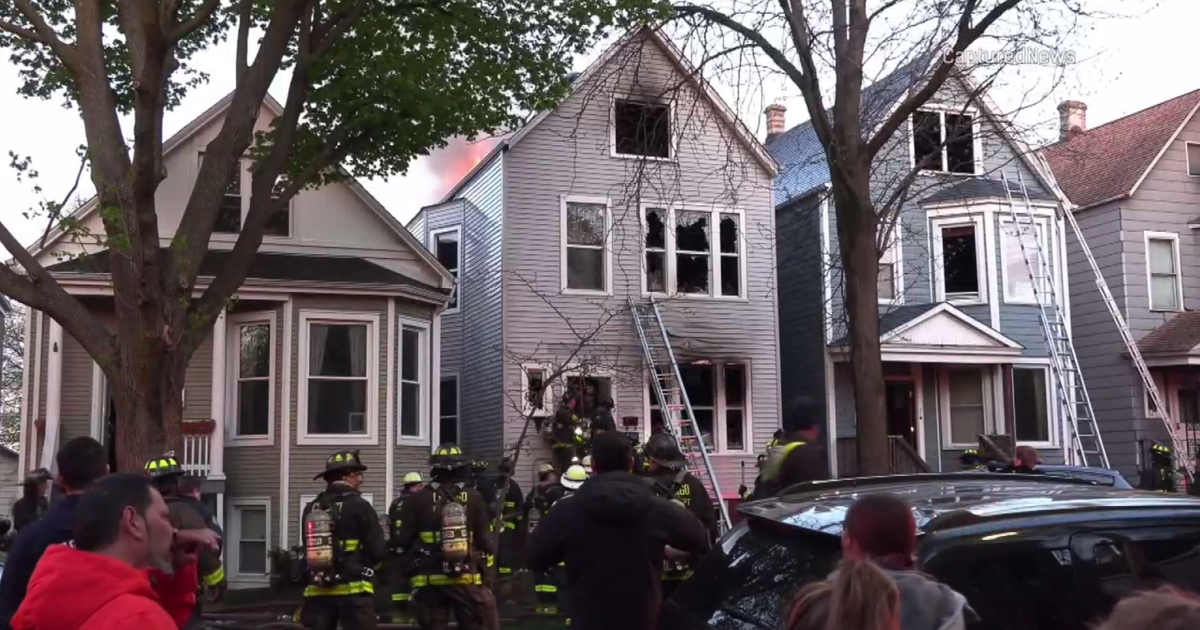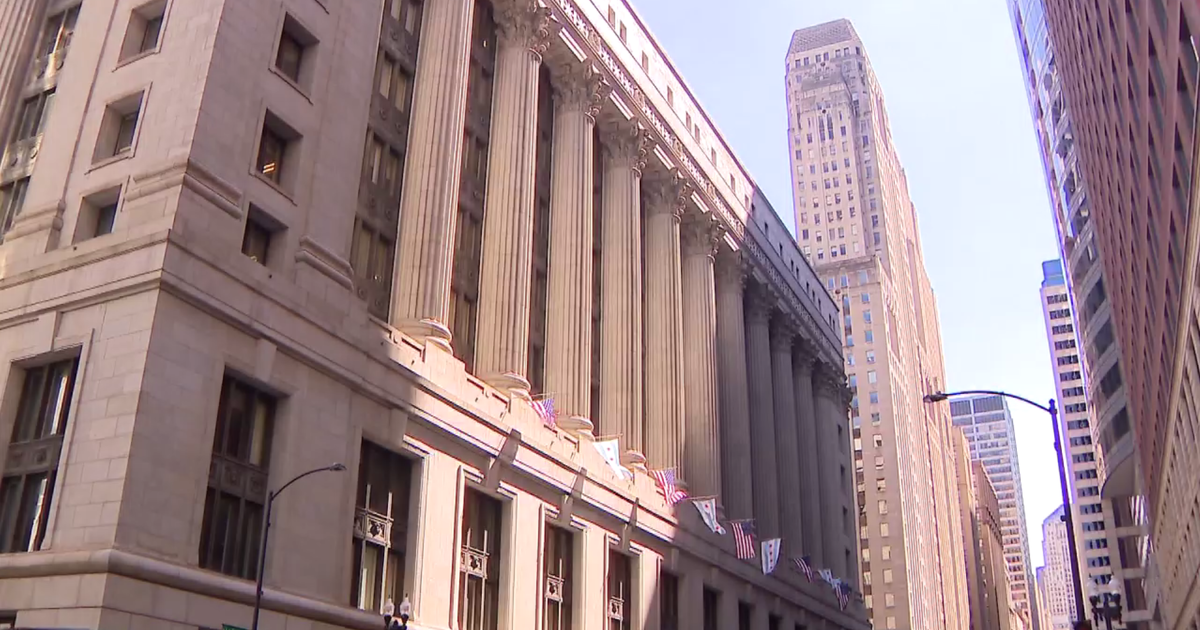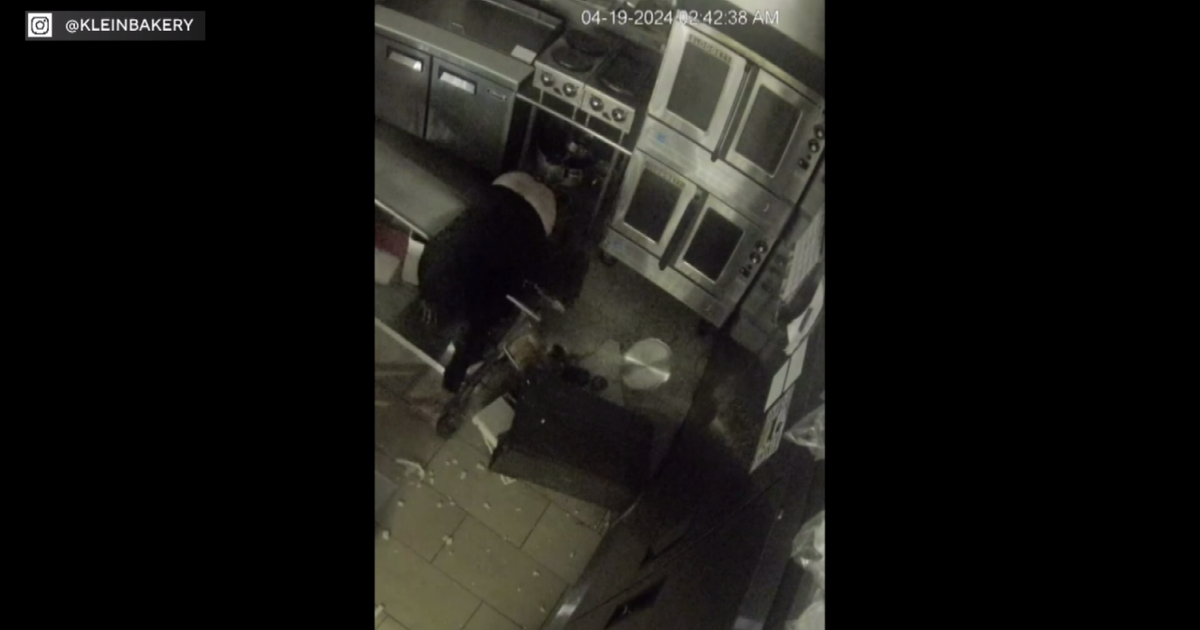Neighbors Protest East Lakeview Wal-Mart Plan
UPDATED 04/21/11 1:35 p.m.
CHICAGO (CBS) -- Residents of the East Lakeview neighborhood are not backing down in their efforts to stop a Wal-Mart store from moving in.
They were joined by small business owners, union leaders and other advocates Thursday morning for a protest against plans by a Wal-Mart to move into the Broadway at Surf building, a retail complex in the 2800 block of North Broadway.
"This community is too special, said Kristin Ryan, an organizer with United Food and Commercial Workers International Local 881. "Local businesses have worked too hard to be trampled by a corporate giant like Wal-Mart."
The approximately 30,000 square-foot store would take over a pair of vacant storefronts previously occupied by a Wolf Camera and a PetSmart store, and would displace a popular Cost Plus World Market store in the storefront just to the north.
But many neighbors have come out in force against the plan, saying it would threaten the many small businesses that line Broadway, Diversey Parkway and other major streets nearby, and expressing concern about the business and labor practices at the world's largest retailer.
At the protest Thursday morning in front of the Broadway at Surf, several speakers said if Wal-Mart moved in, many small businesses and the very character of the neighborhood would disappear.
"We consider places like Wal-Mart to be black holes, sucking everything within a 1-mile perimeter into their greed and into their profits," said Melissa Ryzy, president of Local First Chicago, an advocacy group for small businesses.
"They care about the stockholders. They don't care about the people of Chicago. If we don't turn a profit for them, they'll leave a blighted community," Ryzy continued.
At a community meeting last week, Wal-Mart spokesman John Bisio said the proposed store would bring 75 to 100 new jobs. But speakers at the protest Thursday said those jobs would be of no benefit, and would come with their own cost.
Susan Hurley of Chicago Jobs with Justice said taxpayers could expect to subsidize low-paid Wal-Mart workers, "who often qualify for food stamps or Medicaid, or even subsidized housing because of the low income, so we can't afford to have a neighbor like Wal-Mart when they pay less. We all pay more."
Mark Thomas, owner of The Alley alternative apparel shop and several other stores at Clark and Belmont, said if Wal-Mart opened a grocery store in the neighborhood, the Dominick's that burned down a couple of blocks north on Broadway six years ago would never return, and an independent grocery store just to the south on Diversey Parkway would be sure to go out of business.
"They need to leave Lakeview alone," Thomas said. "The corner of Diversey and Clark and Broadway is the single densest point in the United States today. Wal-Mart's making us into their school science project. We don't need to be anybody's school science project."
He also took issue with Wal-Mart's use of manufacturers in China rather than U.S. manufacturers, and the company's resistance of workers' attempts to unionize.
"Across the street is my hearse, and we're hoping to put Wal-Mart's wishes for Lakeview in the back of the hearse and haul them out of here," Thomas said.
Community activist Bruce Alan Beal, who founded the "Stop the Lakeview/Lincoln Park Wal-Mart" Facebook group when rumors of the planned Wal-Mart first surfaced in December, said he has seen virtually "zero support" for the planned Wal-Mart. The Facebook group has swelled to more than 850 members, while organizers have collected more than 1,000 petition signatures against the planned store, Beal said.
He pointed out that the planned Wal-Mart would stretch from the loading dock at the south end of the building to the parking garage entrance about half a city block away, and would displace "the functioning and profitable World Market, which is being run out to create room for this Wal-Mart," Beal said.
"They will probably displace more jobs at Cost Plus World Market than they're going to create at the grocery store right out of the gate," Beal said.
Beal said he is worried that East Lakeview could become the victim of the same fate as the business district of his hometown in Indiana.
"About 25 years ago, Wal-Mart came into the edge of that community, and they told that community – my uncles, aunts who had businesses, and all that – that they were just going to put in a little store," Beal said. "Fast forward 25 years, and every locally owned business on the little town square on this county seat in Indiana is gone. All of them."
At the meeting of the South East Lake View Neighbors Association last week, Bisio presented the planned Wal-Mart Neighborhood Market as serving a need for a low-cost store in the neighborhood. He said the store would carry food and produce items, beauty products, pharmacy items, and "limited" general merchandise such as computer printer paper.
But most of the people who attended the meeting came wearing buttons or stickers protesting the arrival of Wal-Mart. After Bisio gave a presentation about the plan, dozens of people lined up to voice their opposition to Wal-Mart moving into the neighborhood.
Last week, Ald. Tom Tunney (44th) acknowledged neighbors' concerns, but said some neighbors had also spoken out to him in favor of the Wal-Mart.
In a statement on the 44th Ward service office Web site, Tunney said: "I understand that to many neighbors, the prospect of a Wal-Mart in the 44th Ward is unacceptable, no matter what the size of the proposed store. I have also heard from neighbors who would like to see a low-cost grocery store at that location. The City of Chicago cannot legally exclude a business from entering into a tenant agreement if that tenant conforms to underlying zoning."



